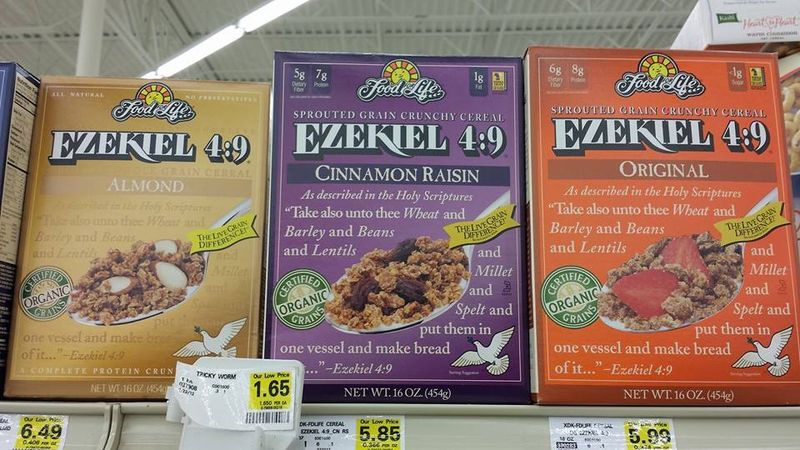Why Context, Context, Context Is So Vital for Sound Biblical Exegesis
/Over and again I emphasize on my radio program that the three most important rules for sound Biblical exegesis are 1. Context 2. Context and 3. Context. These rules are so vital that, as you are about to see, they could save you a lot of heartache and remorse. Below is a photo taken by a listener at a local organic grocery store of a shelf full of products with the name Ezekiel 4:9.
Clearly the makers of these products consider themselves to be selling healthy "Biblical Cereals" and who could argue with that? If you open your Bible and read the verse that is printed on the box it says,
“And you [Ezekiel], take wheat and barley, beans and lentils, millet and emmer, and put them into a single vessel and make your bread from them.”
The verse seems to be prescribing a healthy recipe directly from the LORD Himself, right? Wrong!
If you read this entire passage in context you will discover that there is a secret ingredient that the makers of Ezekiel 4:9 strategically omitted. Had they named their products Ezekiel 4:9-15 there isn't a person on the planet who'd want to purchase, yet alone eat these cereals. Here's the full context:
““And you, take wheat and barley, beans and lentils, millet and emmer, and put them into a single vessel and make your bread from them. During the number of days that you lie on your side, 390 days, you shall eat it. And your food that you eat shall be by weight, twenty shekels a day; from day to day you shall eat it. And water you shall drink by measure, the sixth part of a hin; from day to day you shall drink. And you shall eat it as a barley cake, baking it in their sight on human dung.” And the LORD said, “Thus shall the people of Israel eat their bread unclean, among the nations where I will drive them.” Then I said, “Ah, Lord GOD! Behold, I have never defiled myself. From my youth up till now I have never eaten what died of itself or was torn by beasts, nor has tainted meat come into my mouth.” Then he said to me, “See, I assign to you cow’s dung instead of human dung, on which you may prepare your bread.” (Ezekiel 4:9–15)
Now do you see why context, context, context is so vital for sound Biblical Exegesis?
χάρις ἔλεος εἰρήνη σοι,



